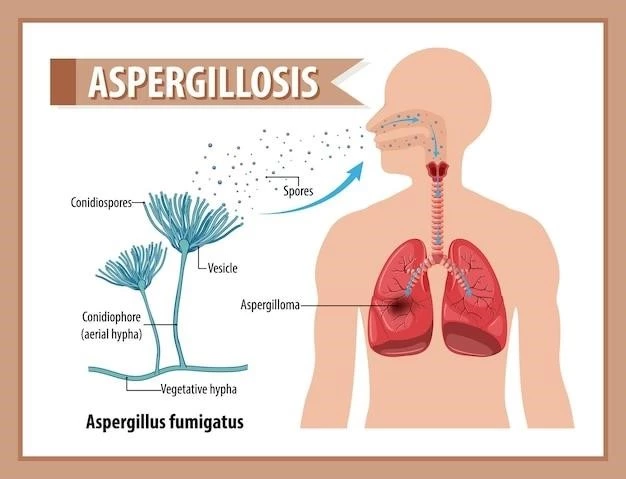Introduction to Thymoma
A thymoma is a tumor originating from the epithelial cells of the thymus that is considered a rare malignancy. Thymomas are frequently associated with neurological and autoimmune disorders such as myasthenia gravis. Understanding the nature of thymoma is crucial for early detection and appropriate management.
What is Thymoma?
A thymoma is a rare malignant tumor that originates from the epithelial cells of the thymus gland. Often associated with autoimmune diseases like myasthenia gravis, thymomas affect the immune system and can have diverse clinical implications. Understanding thymoma is crucial for prompt diagnosis and effective management.
Understanding Thymoma
Thymoma is a rare malignancy originating from thymus epithelial cells, often associated with autoimmune disorders like myasthenia gravis. Early detection and understanding of thymoma are vital for effective management.
Signs and Symptoms of Thymoma
Thymoma may present various signs and symptoms, including chest pain, persistent cough, breathing difficulties, and trouble swallowing. Understanding these potential indicators is crucial for early detection and timely medical intervention.
Diagnosis of Thymoma
Diagnosing thymoma involves a combination of imaging tests, such as CT scans and MRIs, biopsies for pathological examination, and blood tests to assess markers indicative of thymic tumors. A multidisciplinary approach with oncologists and pathologists is crucial for accurate diagnosis and treatment planning.
Treatment Options for Thymoma
Effective treatment strategies for thymoma may include surgery to remove the tumor, chemotherapy, radiation therapy, and targeted therapy. The selection of the most appropriate treatment plan depends on the stage of the thymoma, its characteristics, and the individual’s overall health condition; A collaborative approach involving oncologists, surgeons, and other specialists is essential for comprehensive and successful thymoma management.
Prognosis of Thymoma
The prognosis of thymoma varies depending on factors such as the tumor stage, histological type, and treatment received. Early detection and appropriate management play a crucial role in improving the overall outcomes and quality of life for individuals diagnosed with thymoma. Regular follow-up care and monitoring are essential to track the response to treatment and detect any potential recurrence.
Association with Other Diseases
Thymoma, while rare, can be associated with various autoimmune diseases, including myasthenia gravis and other conditions affecting different organ systems. Understanding these associations is crucial for comprehensive care and management.
Autoimmune Paraneoplastic Diseases Associated with Thymoma
Thymoma can be linked to various autoimmune paraneoplastic diseases affecting different organ systems. Early detection and proper management are crucial for individuals with thymoma to address associated conditions effectively.
Link Between Thymoma and Myasthenia Gravis
Thymoma is often associated with myasthenia gravis, an autoimmune condition that leads to muscle weakness. Understanding the link between thymoma and myasthenia gravis is crucial for timely diagnosis and appropriate management of both conditions.
Thymoma and Autoimmune Diseases
Thymoma is often associated with various autoimmune conditions, including myasthenia gravis, red cell aplasia, hypogammaglobulinemia, pernicious anemia, systemic lupus erythematosus, and rheumatoid arthritis. Understanding the relationship between thymoma and autoimmune diseases is crucial for effective management and comprehensive care.
Connection to the Immune System
Thymoma, a tumor originating from thymus epithelial cells, can impact the immune system and lead to various autoimmune diseases. Understanding these connections is vital for comprehensive care and tailored treatment approaches.
Role of Thymus in the Immune System
The thymus plays a crucial role in the immune system by producing and maturing T-cells, which are essential in immune responses. Thymoma, originating from thymic epithelial cells, can disrupt this process and lead to immune-related manifestations, highlighting the intricate connection between thymoma and the immune system.
Autoimmune Diseases Linked to Thymoma
Thymoma is often linked to autoimmune diseases such as myasthenia gravis, red cell aplasia, hypogammaglobulinemia, pernicious anemia, systemic lupus erythematosus, and rheumatoid arthritis. Understanding these connections is essential for tailored treatment approaches and holistic care.
Thymic tumors encompass thymomas and thymic carcinomas, rare cancers affecting the thymus gland. Understanding the different types of thymic tumors and their incidence rates is crucial for diagnosis and treatment decisions.
Types and Incidence of Thymic Tumors
Thymic tumors encompass thymomas and thymic carcinomas, which are rare cancers affecting the thymus gland. Understanding the differences between thymoma and thymic carcinoma and their respective incidence rates is crucial for appropriate diagnosis and treatment planning.
Incidence and Age Distribution of Thymic Tumors
Thymic tumors, including thymomas and thymic carcinomas, are rare cancers affecting the thymus gland. Understanding the incidence rates and age distribution of these tumors is essential for diagnosing and managing thymic malignancies effectively.
Effective management of thymoma involves a combination of surgical intervention, chemotherapy, radiation therapy, and targeted treatments. It is crucial to consult with a multidisciplinary team of healthcare professionals to determine the most suitable treatment plan based on individual factors and disease characteristics.
Surgical and Medical Management
Effective management of thymoma involves a combination of surgical intervention, chemotherapy, radiation therapy, and targeted treatments. It is crucial to consult with a multidisciplinary team of healthcare professionals to determine the most suitable treatment plan based on individual factors and disease characteristics.
Medical Treatments for Advanced Thymoma
Advanced thymoma may require a combination of medical treatments, including chemotherapy, targeted therapy, immunotherapy, and, in some cases, participation in clinical trials for innovative therapies. Consulting with oncologists specializing in thymic malignancies is crucial to explore the most appropriate and promising treatment options for advanced thymoma.
Importance of Follow-Up Care
Following treatment for thymoma, regular follow-up appointments are crucial to monitor the response to treatment, detect any potential recurrence, and address any new symptoms or concerns. Consistent follow-up care plays a significant role in ensuring long-term health and wellbeing for individuals with thymoma.
Research and Case Studies
Stay informed about the latest research findings and case studies related to thymoma to understand advancements in diagnosis and treatment options. Keeping abreast of new developments can provide valuable insights into managing this rare malignancy effectively.
Recent Findings on Thymoma
Staying up-to-date with the latest advancements in thymoma research is crucial for understanding emerging treatments, diagnostic tools, and potential breakthroughs. Recent findings in thymoma research can provide valuable insights into improving patient care and outcomes.
Case Studies on Thymoma and Associated Diseases
Exploring case studies related to thymoma and associated diseases can provide valuable insights into diverse patient experiences, treatment outcomes, and the impact of these conditions on individuals. Studying real cases can help healthcare professionals tailor care and support to address specific challenges faced by patients with thymoma.
Impact on Health and Well-Being
Understand the effects of thymoma on overall health, as well as the psychological and emotional impact it can have. Managing thymoma involves addressing its implications on both physical well-being and mental health to ensure a comprehensive approach to care.
Effects of Thymoma on Overall Health
Thymoma can impact overall health by causing symptoms such as chest pain, persistent cough, breathing difficulties, and muscle weakness. Managing thymoma involves addressing these effects to ensure optimal health and well-being for individuals diagnosed with this condition.
Psychological and Emotional Impact of Thymoma
Thymoma can have a significant psychological and emotional impact on individuals, leading to feelings of anxiety, stress, and uncertainty. Coping with the diagnosis and treatment of thymoma may require emotional support and counseling to address these aspects of well-being effectively.

Prevention and Awareness
Early detection and screening are essential in managing thymoma effectively. Raising awareness about thymoma and its connection to autoimmune diseases can lead to timely diagnosis and improved outcomes. Stay informed and advocate for regular health check-ups to detect thymoma early.
Importance of Early Detection and Screening
Early detection and screening for thymoma are crucial in improving treatment outcomes and overall prognosis. Being proactive in recognizing symptoms and undergoing regular screenings can aid in detecting thymoma at an early stage, leading to more effective management and positive health outcomes.
Raising Awareness about Thymoma and Related Conditions
Increasing awareness about thymoma and its associations with autoimmune diseases like myasthenia gravis, red cell aplasia, hypogammaglobulinemia, and others is essential for early detection and improved outcomes. Educating the public and healthcare professionals about thymoma can lead to timely diagnosis and tailored treatment approaches for affected individuals.

Future Perspectives and Advances
Stay abreast of promising research areas in thymoma treatment to explore potential breakthroughs and advancements in managing this rare malignancy effectively. Understanding the evolving landscape of thymoma management can lead to improved patient outcomes and quality of care.
Promising Research Areas in Thymoma Treatment
Exploring innovative research areas in thymoma treatment can pave the way for future advancements and breakthroughs in managing this rare malignancy. Staying informed about emerging research avenues can lead to improved therapeutic strategies and enhanced patient outcomes.
Potential Breakthroughs in Thymoma Management
Exploring potential breakthroughs in thymoma management may include innovative treatment methods, personalized therapies, targeted approaches, and advancements in immunotherapy. Keeping abreast of these developments can lead to improved outcomes for individuals with thymoma.
Conclusion
In conclusion, understanding thymoma and its implications is essential for timely diagnosis and effective management. By staying informed about the latest research, advancements in treatment, and raising awareness, individuals and healthcare professionals can work together to improve outcomes for those affected by thymoma. Regular screenings, early detection, and comprehensive care are key in addressing the challenges posed by this rare malignancy.
